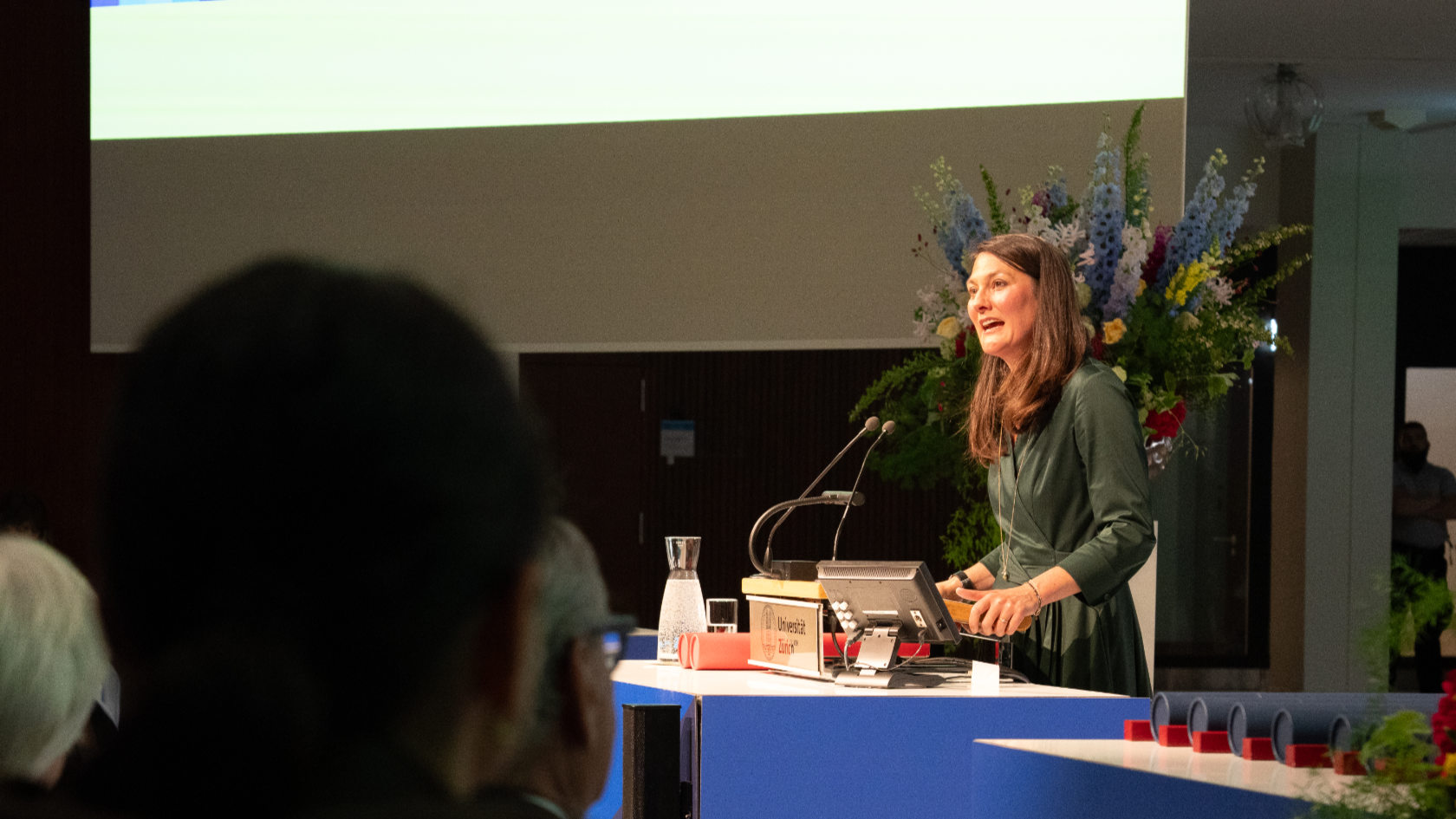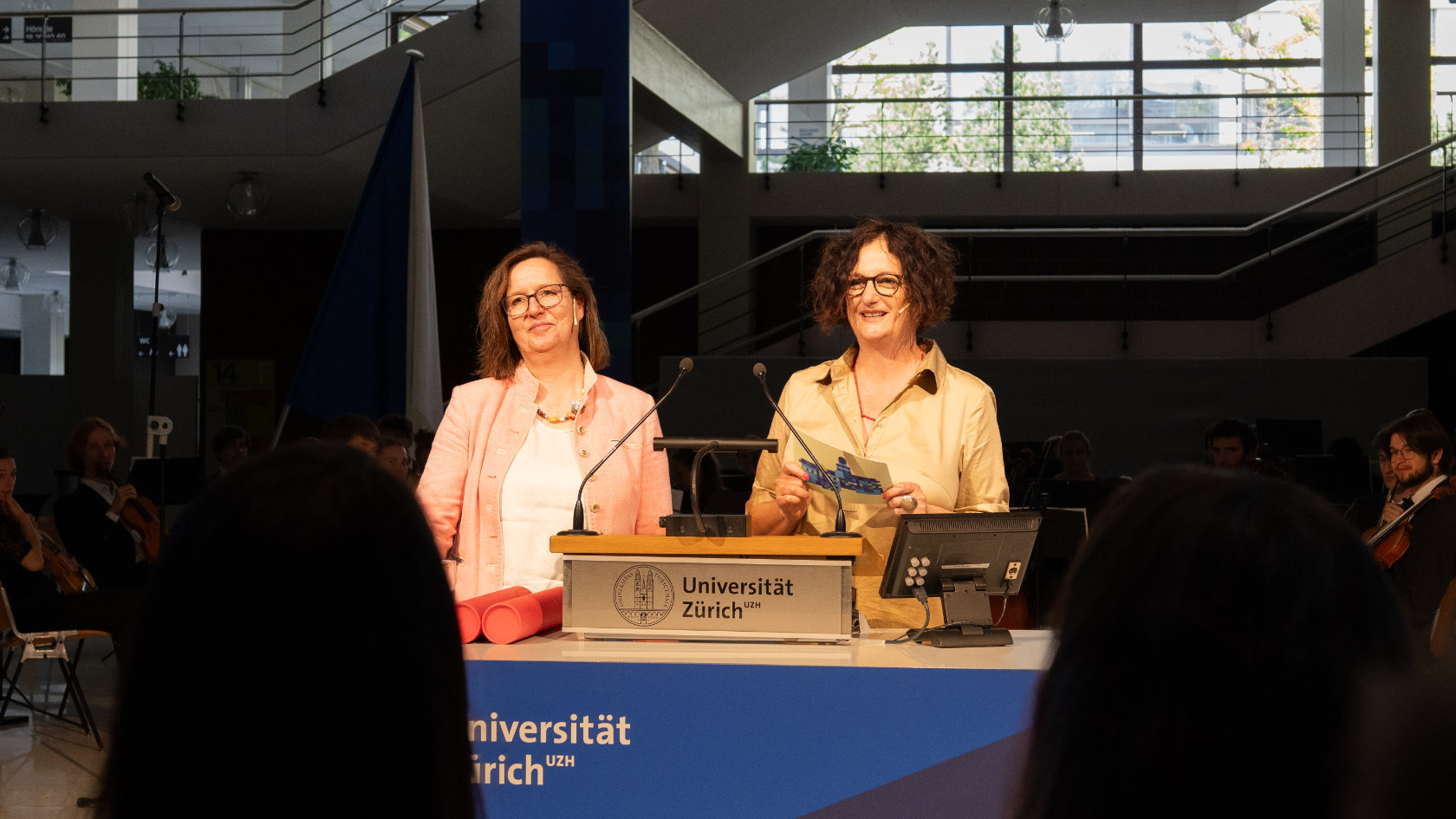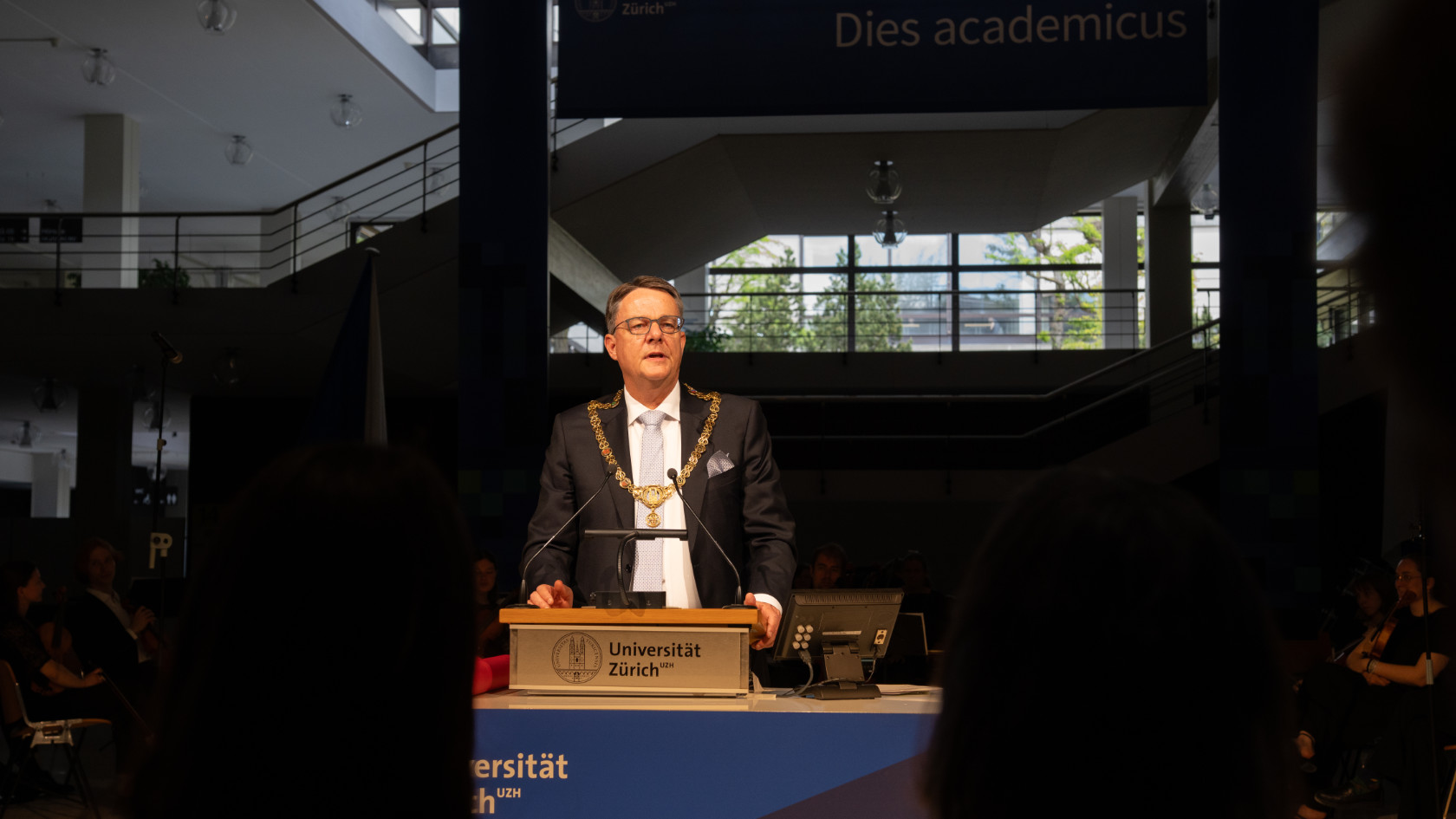Advocating Bold Research in Turbulent Times
Numerous guests from the worlds of science, business, culture and politics turned up to celebrate UZH’s 192nd birthday on 16 May 2025. “Cynics might say that the Dies academicus is the only day when researchers actually come out of their offices, labs and libraries to prove they exist,” remarked host Barbara Bleisch wryly. Although not an entirely accurate characterization, she admitted that even so, it was a wonderful thing that researchers loved their place of work that much.
Political turbulence
Councilor of States Tiana Angelina Moser, who herself studied environmental sciences at UZH, returned to her alma mater to deliver the keynote address, touching on topics from pesticides to policy. The member of parliament explained that science and politics were two worlds that had shaped her. “What you learn at university doesn’t just change your own perspective, but with a bit of luck it might also change the world.” She went on to say that this may be precisely why some political actors hold such a grudge against scientists.
“The current international situation shows more clearly than it has for a very long time that science is not detached from the turbulence of politics,” she explained. She called on scientists and policymakers to clarify their roles.
Politicians are responsible for making decisions on the basis of the available facts and evidence, she said. Meanwhile, scientists must communicate the facts in a clear, assertive and understandable way, even if they are politically contentious. That can sometimes be uncomfortable and takes courage, she added. Tiana Angelina Moser called on scientists to “say what is, and say it in a way that people will understand.”
The people in the background
Following the keynote address came the speech by one of the UZH representative bodies. Every year at the Dies academicus, a different representative body is given the opportunity to highlight their role at the university. In 2025 it was the turn of the Association of Administrative and Technical Staff (V-ATP). Some 3,700 members of the ATP currently work at UZH in various roles, from administrative assistants to librarians and facility managers.
Ruth Hunkeler-Wittleder and Laura Beccarelli, co-presidents of the V-ATP, highlighted how administrative and technical staff contribute behind the scenes to the success of cutting-edge research at the university. The pair called on UZH members to recognize the work of the ATP and the fact that they could be relied on to resolve issues and find solutions. “We have the right equipment, resources, and expertise to ensure things go smoothly and to keep UZH running,” they added.
Captions/subtitles are available by clicking on the settings in the bottom right corner of the menu.
The importance of basic research
Following a video looking back at some research highlights, UZH President Michael Schaepman reminded the audience of the essential role played by research in society, particularly in light of global economic, political and environmental challenges. “Basic research is the cornerstone of innovation and sustainable value creation,” said Schaepman.
Universities have to respond responsibly to global megatrends, such as polarization, power shifts, and disinformation. The UZH President argued that the role of universities is to question societal developments, and that challenging the status quo and rocking the boat was the essence of a good university.
Exchange and dialogue with universities in Switzerland, Europe and worldwide is key in view of the current global situation. UZH further expanded its international network in 2024 and now collaborates with more than 1,000 academic institutions all over the world. Meanwhile, local roots remain crucial. The strong ties that UZH enjoys with Zurich’s other higher education institutions, hospitals, the local population and policymakers are a vital element when it comes to strengthening the foundations for future success.
Numerous honors presented
As it wouldn’t be a birthday party without music, the Zurich Academic Orchestra – who are playing a concert at the Tonhalle on 29 May – provided musical accompaniment at the event.
The presenters of the awards and distinctions also hit the right note in their tributes to recipients. Twenty-six awards were presented this year.
Eveline Saupper and Christian Wenger were appointed as honorary senators in acknowledgment of their extraordinary commitment to the UZH Foundation and the University of Zurich.
To mark the 500th anniversary of the Prophezey – a working group set up by Zwingli to translate the Bible – two honorary doctorates were awarded to members of the Faculty of Theology and the Study of Religion. They went to historian Amy Nelson and theologian Herman Johan Selderhuis. The Vetsuisse Faculty honored Fredy Knie junior for his outstanding achievements as a horse trainer, whose work puts the animals center stage and has captured the public imagination. Other honorary doctorates were awarded to academic economist Laura T. Starks, banking expert Dr. Christian Rahn, linguist Elisabeth Gülich, legal philosopher Elisabeth Holzleithner, and conservationist Paula Kahumbu.
In addition, the Teaching Award and the Team Effort Award were presented, prizes were handed out for the best doctoral theses, and the recipients of the science awards and research grants were announced.



